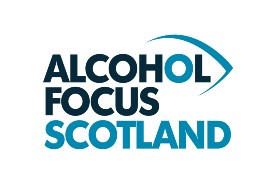James
James shares the devastating impact that alcohol and drugs had on his life.
I had been a fairly heavy drinker since I was a teenager although it was episodic rather than daily. I continued to be a binge drinker from my late teens to my mid-30s. I had friends at University who drank far more than me at that point but none of them ended up where I did.
When I got divorced I started drinking more regularly as well as bingeing. The divorce was a trigger I think but my strong belief is that I was heading in the wrong direction from an early age and had the divorce not happened I may well have ended up in the same position.
I would increasingly use alcohol and drugs to anaesthetise whatever unpalatable emotions I was going through and became increasingly reliant on both to cope with emotions that non addicts also feel but manage in a healthier way. The longer I used alcohol and drugs in this way the more it altered my brain chemistry and the more I used them.
Life became chaos really. My drinking and drug use led to me being increasingly isolated from the world and not seeing my family. I would lie to my friends and would fail to turn up for key events.
I never cleaned my flat and didn’t look after myself – I was binge eating, stopped exercising and had no energy. My emotions ranged from anger, denial, paranoia and grandiosity.
The impact on my life was catastrophic.
Drugs (in my case cocaine) got me to my rock bottom very quickly as it is expensive, enables you to consume more alcohol and drives you to consume alcohol to cope with the downer of cocaine use. It also drives promiscuity and for me personally was instantly more addictive and difficult to control than alcohol.
Increasingly the use of alcohol and drugs co-existed and I could never do one without the other.
I realised I had a problem too late (as is often the case). I had been told it was a problem by friends and family and in treatment centres. I did recognise it was a problem after each episode but I saw the episodes as isolated incidents and vowed after each one to exert control and not do it again to such a degree.
I only fully accepted it was a problem when I lost all my money through losing jobs and over spending and I was banned from seeing my son.
In my experience most addicts need to get to a rock bottom before finally accepting they have a problem. I first went into treatment four years before I stopped using but it was someone else's idea and I went along with it. I didn't seek help myself until three years ago after I had lost everything.
My advice to others would be if you think you might have a problem and others close to you say you do then you very definitely do. If you increasingly resolve to stop and can't then you have a problem.
Look at your family history. If a parent or sibling is an addict and you start going downhill it is very likely you have the same illness - some say there is a strong genetic link although others argue it is learned behaviour. Look for healthy ways of countering unwanted emotions – that might be exercise, reading, helping others or a hobby.
I would say go to an AA or NA meeting and go with an open mind. If you have a problem accept you have an illness not a moral deficiency. The latter diagnosis creates shame and can be a catalyst for more drinking or drug use to deal with the shame.
It can be difficult to see alcohol available everywhere and the advertising of it encourages people to drink more and that leads to accidents, ill health and crime. However, my own view is that addiction is an illness and Government and healthcare officials need to concentrate on how to treat addiction and fund ongoing support and recovery services.
